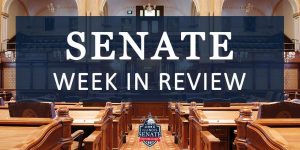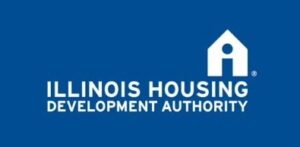
The federal Internal Revenue Service this week encouraged Illinoisans to hold off on filing their 2022 returns as they are determining whether Gov. JB Pritzker’s election-year tax rebates are taxable by the federal government. The IRS has publicly stated that instead of filing incorrect tax returns, taxpayers should pause on filing or amending their tax returns.
In other news, Ameren Illinois has filed with the Illinois Commerce Commission for another rate increase. The last rate increase was in June 2022, and this winter Ameren is already predicting an increase in energy costs.
Last week, the Illinois Manufacturers’ Association opened the 2023 Makers’ Madness contest for the title of The Coolest Thing Made in Illinois. Nominations can be made on IMA’s website and will be open until Feb. 19.
Also, the Illinois Housing Development Authority has announced that it will open the Strong Communities Program for applications in the spring. The grants are given to help in the maintenance or demolition of abandoned residential buildings in an effort to revitalize local communities.
Income from Pritzker’s Election-Year Tax Rebate Checks Under Review by IRS

The Internal Revenue Service (IRS) is recommending Illinois taxpayers hold on filing their 2022 tax returns if they received the special, one-time property tax and/or income tax refund check from the state of Illinois last year. Currently, the IRS is working with state tax officials to determine if those refunds or payments are taxable by the federal government.
The refund checks in question are the ones that most Illinoisans received last fall and were part of Gov. Pritzker’s temporary “tax relief” plan. This plan received sharp criticism from State Sen. Jil Tracy (R-Quincy), as it was seen as an election-year gimmick by the Governor. At a time when he had the opportunity to provide permanent, long-lasting relief, the Governor instead chose to issue one-time payments that arrived in the mail right ahead of his 2022 election.
The income tax rebate checks were sent to those who earned less than $200,000 for individual filers, and less than $400,000 for joint filers. Single filers received $50 and joint filers received $100, and those with dependents received $100 per dependent up to $300. The election-year plan also sent property tax rebates up to $300 to homeowners.
It was determined that these payments are not taxable on the state level; however, it is unclear if the refunds are federally taxable. The IRS is cautioning residents to wait to file their taxes until further instruction is given. This is to avoid filing mistakes and having to amend a previously filed 2022 return. Additionally, if residents have already filed their taxes, they should wait for guidance from the IRS or a tax professional before attempting to amend their returns.
Ameren Files for Another Rate Increase

As Illinoisans continue to struggle with high utility bills, Ameren Illinois filed plans this week for both electric and gas rate increases with the Illinois Commerce Commission (ICC). This is in addition to the electric rate increase that took effect in June 2021, where the average customer saw a $52 per month increase in the power supply portion of their bill. This winter, Ameren has already projected a more than 25 percent increase in energy costs for customers.
The company is citing a supply and demand challenge, especially in downstate areas, as the reason for the increase. Contributing factors, they say, are COVID-19, the war in Ukraine, and the Climate and Equitable Jobs Act’s (CEJA) push to shut down coal-powered facilities.
At this moment, Ameren has requested a $160.4 million gas rate hike over a year, and a $435.6 million electric rate increase over four years. This request will next undergo an 11-month review by the ICC, which includes public comment prior to their December decision.
Sen. Tracy has been vocal about Illinois’ energy and reliability concerns as consumers continue to pay more for energy. While she is supportive of having a diversified energy portfolio that includes renewable resources, recent moves to completely get rid of coal as an energy resource is impacting reliability and increasing costs for consumers.
IMA Opens Contest for ‘The Coolest Thing Made in Illinois’
On Feb. 2, the Illinois Manufacturers’ Association (IMA) opened its fourth annual Makers Madness contest. In a search to find and declare “The Coolest Thing Made in Illinois,” residents are allowed to nominate and then vote on their favorite product made by Illinois manufacturers.
Nominations for “The Coolest Thing Made in Illinois” are open until Feb. 19, and residents are not limited in the number of products they can nominate. All nominations must be submitted online, and must include the name of the product, the name of the manufacturer, link to the product/manufacturer’s website, and the name, email, and a telephone number of the person making the nomination.
Other than the fact that the product must be made in Illinois, there are no limitations on which products can be nominated. Any product from any sector of the manufacturing industry will be accepted; however, only one product from each company will be allowed from the Nomination Round into the First Round of bracket voting. Nomination voting will begin Feb. 21 and all can cast up to five votes per each day nomination voting is open. The winner of the title of “The Coolest Thing Made in Illinois” will be announced March 29.
Last year’s winner of the popular contest was the all-electric R1T truck made by Rivian, which is manufactured in Normal.
Local Revitalization Grant Program Will Open in Spring

This spring will bring a developing program from the Illinois Housing Development Authority (IDHA) called the Strong Communities Program (SCP). This program is designed to provide competitive grants to various municipalities, counties and land banks that will go toward either the maintenance or demolition of abandoned residential properties. Through this program, IDHA is hoping to help grow local revitalization efforts within the communities it supports.
While the approval process for these grants has not yet started, now is the best time to start thinking ahead about community applications. In previous years, it was also possible to submit a single application for a combination of counties/municipalities, although only one application can be submitted per unit. Any grant funds may be used for securing, maintaining, demolishing, or rehabilitating abandoned residential properties. Last year’s program awarded amounts with a minimum of $40,000 and a maximum of $250,000.
